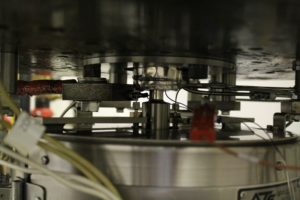The Value of Fatigue Testing

Fatigue testing is a crucial procedure used by engineers and technicians to help predict the durability of a part or component under its operating conditions. To appreciate the value of fatigue testing, it is essential to first understand this testing service.
Fatigue is a type of structural damage prevalent in cyclically loaded structures. The fatigue is characterized by an initiation and growth of cracks that will eventually result in a catastrophic fracture of a material. Unlike the structural failure caused by an overload, fatigue damage develops under the magnitude of the stresses below the material’s yield strength, and therefore tends to covertly manifest without deforming or showing obvious “warning signs”. The rate at which a fatigue crack grows is dependent on the material’s properties as well as the intensity and cycle frequency of the applied load.
Fatigue testing is used to evaluate a material’s (and component’s) structural durability by testing and analyzing its ability to withstand cyclic loading conditions.
Fatigue Testing Methods
There are different types of fatigue testing machines with various capabilities, ranging from automated material specimen tensile test machines to large full-scale structural test rigs. In a rotating structure, such as gas turbine disks and blades, accurately capturing the loading conditions in fatigue-prone features can be a complicated challenge. Rotors often have intricate geometries to serve its intended functions and these features are subject to varying degree of multiaxial stresses caused by the CF load, which also changes over the course of the operating cycle of the machine as rotor speed changes. These loading conditions are difficult, if not impossible, to capture in test methods other than spin testing.
Within the rotor specific testing techniques, Test Devices Inc. is specialized in performing different variants of LCF (Low Cycle Fatigue) and HCF (High Cycle Fatigue) tests.
The LCF regime is characterized by a higher load application, within the material’s elastic-plastic range, at low frequency (or cycle rate). For example, the take-off and landing cycle of an airplane. Typically, the HCF regime is characterized by the application of a very high-frequency load which results in a rapid accumulation of fatigue damages in a short span of time. These conditions are found in the vibrating vanes or blades subject to resonance.
Both LCF and HCF are common issues in the operation and safety of critical rotating components. Unexpected failure of rotors, such as high-speed impellers and turbine engines, which operate under high centrifugal forces often end in a catastrophic effect.
Benefits of Spin Fatigue Testing
Fatigue testing is performed to generate the data needed to validate and/or refine a probabilistic model of the components’ life in its operational environment. The way the fatigue damage initiates and develops in a material can be influenced by various factors including the loading field cycle pattern, axiality, temperature and environmental factors (e.g. oxidation and corrosion).
The result of the fatigue test data helps to define the maintenance and repair cycle requirements and the safe operating life of machines. These will have a significant impact on the cost of ownership of the equipment as well as safety-related issues.
Test Devices specializes in providing the most relevant test data to our customers who design and develop the advanced machines that are critical to our transportation, infrastructure, and national defense.
Spin fatigue testing can be used in any industry or application where the durability and integrity of a rotor and rotating component matters. Some industries that regularly use fatigue testing and fatigue testing machines include:
- Automotive – Turbochargers, tires, and wheels
- Aerospace – Jet engine components, turbine rotors, wing materials
- Medical – Prosthetics, implants
Learn More From Test Devices, Inc.
At Test Devices Inc., we offer both low-cycle and high-cycle fatigue spin testing services for clients who work with high-speed rotating components in demanding environments. We are capable of testing various complex and cutting-edge machinery parts for jet engines, electric motors, turbomachinery, and energy storage systems.
Our qualified and experienced engineers are willing to assist you in fatigue testing your unique part or component. If you would like to learn more about our testing services, feel free to contact our support team today.



Comments are closed